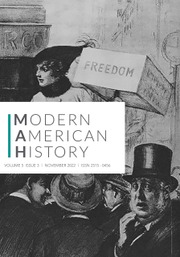From Modern American History.
In the early 1920s, legal and economic experts in the U.S. Treasury Department played a pivotal role in developing U.S. fiscal policy. Thomas S. Adams was one such expert and a key architect of the World War I fiscal state. After the war, Adams envisioned an innovative business tax that could have been the first broad-based, national consumption tax in the United States but was rejected by populist lawmakers. Later, Adams would be identified as one of the intellectual pioneers of the modern value-added tax (VAT)—a tax that has been adopted in nearly every developed country in the world except the United States and has also come to underwrite expansive, progressive social-welfare spending.
How did a tax that began with an American expert fail to take hold in the United States? Democratic forces in the shape of organized political and economic interests both facilitated and frustrated the development of seemingly rational tax laws and spending policies crafted by fiscal experts. While Adams learned firsthand how these democratic forces influenced the relationship between expertise and state capacity, this missed opportunity to enact a comprehensive national consumption tax also influenced the peculiar development of the modern American fiscal and social-welfare states.

